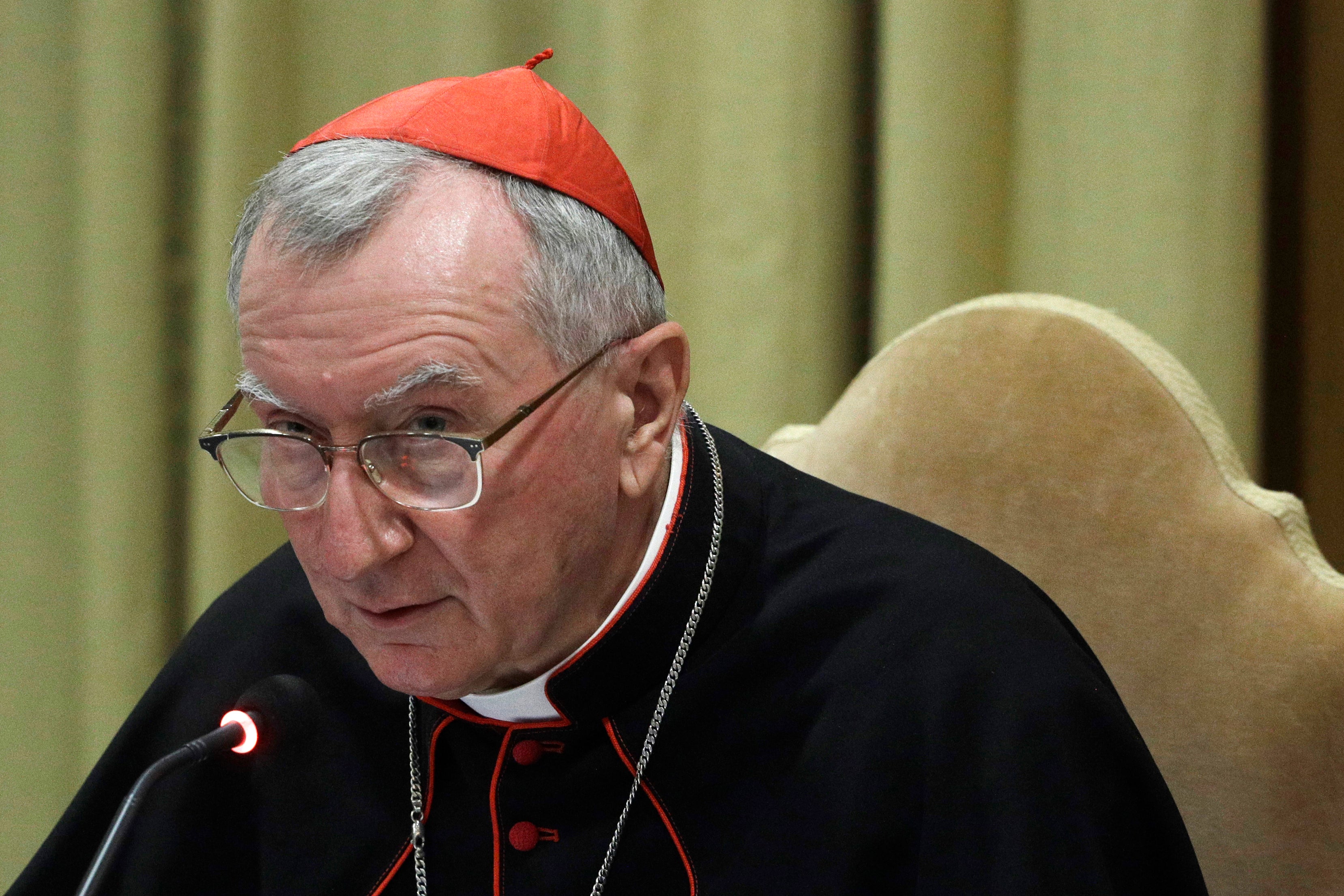Vatican moves to tamp down spat with Italy over LGBT rights
The Vatican’s Secretary of State has attempted to tamp down controversy over a Vatican diplomatic communication to Italy

Your support helps us to tell the story
From reproductive rights to climate change to Big Tech, The Independent is on the ground when the story is developing. Whether it's investigating the financials of Elon Musk's pro-Trump PAC or producing our latest documentary, 'The A Word', which shines a light on the American women fighting for reproductive rights, we know how important it is to parse out the facts from the messaging.
At such a critical moment in US history, we need reporters on the ground. Your donation allows us to keep sending journalists to speak to both sides of the story.
The Independent is trusted by Americans across the entire political spectrum. And unlike many other quality news outlets, we choose not to lock Americans out of our reporting and analysis with paywalls. We believe quality journalism should be available to everyone, paid for by those who can afford it.
Your support makes all the difference.
The Vatican’s Secretary of State attempted to tamp down controversy Thursday over a Vatican diplomatic communication to Italy saying the Holy See was not trying to block passage of a law that would extend additional protections from discrimination to the LGBT community
Cardinal Pietro Parolin, the Vatican’s No. 2, told Vatican News that he personally approved the diplomatic communication, which was intended to express concerns over the proposed Italian legislation. The Vatican is against any “attitude or gesture of intolerance or hatred toward people motivated by sexual orientations,'' he added.
The chief concern, Parolin said, is that “vagaries” in the text of the proposed law could expose anyone expressing an opinion about “any possible distinction between man and woman” to prosecution.
The letter, which has been published by Italian media, claims specifically that the law would violate a landmark treaty establishing diplomatic ties between Italy and the Vatican by putting at risk the right of Roman Catholics to freely express themselves. It cited as an example a clause that would require Catholic schools, along with their public counterparts, to run activities on a designated day against homophobia and transphobia.
The law would add women, people who are homosexual, transsexual or with disabilities, to those protected by a law banning discrimination and punishing hate crimes. The lower house of parliament passed the legislation in November, but it has been stalled in the Senate by right-wing concerns that it would limit freedom of expression.
Right-wing leader Matteo Salvini, for example, has complained that anyone saying that a family is formed with a man and a woman would be exposed to possible prosecution.
Backers of the law have dismissed such concerns, saying that the threshold for prosecution is inciting hatred or violence against the protected classes.
Premier Mario Draghi on Wednesday rebuffed the Vatican’s attempt at influencing the legislative process, telling parliament: “Italy is a secular state.”
But the controversy has ignited outrage over Vatican meddling, with many calling for the cancellation of the so-called Lateran Treaty, originally established under fascism and revised in the 1980s, establishing diplomatic ties between the Vatican and predominantly Roman Catholic Italy.
LGBT activists have vowed to transform Gay Pride events in Rome and Milan on Saturday into protests against what they say is the Vatican’s unprecedented interference in the Italian legislative process.
In decades past, the Vatican objected to Italian laws legalizing abortion and divorce and backed unsuccessful referendums after the fact to try to repeal them.